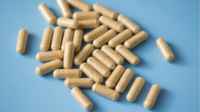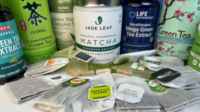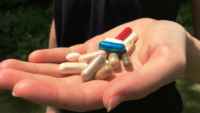- Home
- / CL Answers
- / Is it safe to drink coffee regularly? Does drinking coffee increase or decrease the risk of cancer?
www.consumerlab.com/answers/coffee-and-cancer/coffee-cancer/
Save to favorites
This feature is restricted to active members.
Join now to save favorites and get all member benefits, including over 1,400 reviews.
Join NowAlready a member? Sign in here.

Our Members Asked:
Is it safe to drink coffee regularly? Does drinking coffee increase or decrease the risk of cancer?

Answer:
Despite some earlier concerns, drinking coffee does not seem to increase the risk of cancer. In fact, some studies link coffee intake with reduced risk of developing certain forms of cancer and reduced progression of colorectal cancer, although a cause-and-effect relationship has not been proven.
Sign in for details, including how risk differs based on the amount of coffee intake, addressing these questions:
- Does coffee increase cancer risk?
- Can coffee prevent cancer?
- Can coffee reduce cancer progression?
- Does coffee contain toxic heavy metals or solvents?
- Is it safe to drink coffee regularly?
Note that use of certain supplements have been associated with increased or decreased risk of developing cancers, as discussed in our answer to the question Is it true that some vitamins or supplements can cause cancer?
For information about coffee's impact on cholesterol levels, see our answer to the question Is drinking coffee good or bad for heart health?
In addition the results of its expert testing, ConsumerLab uses only high-quality, evidence based, information sources. These sources include peer-reviewed studies and information from agencies such as the FDA and USDA, and the National Academy of Medicine. On evolving topics, studies from pre-print journals may be sourced. All of our content is reviewed by medical doctors and doctoral-level experts in pharmacology, toxicology, and chemistry. We continually update and medically review our information to keep our content trustworthy, accurate, and reliable. The following sources are referenced in this article:
- Anderson, Int J Food Contam 2017
- Cassileth, Oncology 2010
- Chen, BMJ Open 2021
- Cheng, Can J Cardiol 2014
- Du, Nutr Metab Cardiovas 2020
- EPA is trying to ban
- Eisele, JAMA 1980
- FDA
- FDA, 21CFR173.255
- Gapstur, Cancer Epidemiol Biomarkers Prev 2017
- Health Canada
- Heikes, J AOAC Int 1987
- IARC, Press Release 2016
- Mackintosh, JAMA Oncology, 2020
- Pietsch, The Craft and Science of Coffee Chapter 10
- Rhee, Am J Clin Nutr 2016
- Scientific Report of the 2015 Dietary Guidelines Advisory Committee
- Varady Foods 2021
Join today to unlock all member benefits including full access to all CL Answers and over 1,400 reviews.
Join NowAlready a member? Sign In Here.
Join now at www.consumerlab.com/join/
Agree to Comment Terms
Please abide by the following:
- If you make a statement of fact, such as whether a type of treatment does or does not work, state your basis -- such as personal experience or a published study.
- If you make a positive or negative comment about a product, note whether or not you have a financial interest in the product or in a competing product.
- Please be respectful in your tone.
- Please do not submit any type of HTML markup or scripting as it will not be accepted, nor will posts that exceed 2,500 characters.
For your privacy, only your first name (from your account) followed by a random number will appear with your comment. Your last name and email address will not be displayed.
Your comment has been submitted
We will review your comment before it is posted.

Related Reviews (5)
Latest Research Updates (Clinical Updates)
Solvent in Instant Decaf?
September 12, 2023
Does decaf instant coffee contain less solvent than decaf ground coffee? Find out in our updated article about coffee and cancer.
Starbucks Decaf
September 08, 2023
Does Starbucks decaffeinate its coffee with chemical solvents? Find out in our article about coffee and cancer risk.
Decaf Coffee Brands
September 01, 2023
Do decaffeinated coffees from Seattle's Best or San Fransisco Bay use the solvent methylene chloride? We’ve added information about these to our article about coffee and cancer risk that covers more than 20 coffee brands.
Dunkin’, Nespresso & Decaf
August 29, 2023
Does Dunkin’ Donuts or Nespresso decaffeinate its coffee with chemical solvents? Find out in our article about coffee and cancer risk.
Maxwell House Decaf
August 22, 2023
Does Maxwell House decaffeinated coffee contain chemical solvent? Find out what the company told ConsumerLab in our updated article about coffee and cancer.
Decaf Coffee
August 15, 2023
Learn which decaf coffees do not use solvents in their production.
Decaf Coffee & Chemical Solvents
August 08, 2023
Find out which brands of coffee do not use chemical solvents to decaffeinate their coffee in the “Does coffee contain toxic heavy metals or solvents?" section of our article about coffee & cancer.
Chemical in Coffee
August 01, 2023
Some forms of decaffeinated coffee may contain potentially dangerous residual solvents used to remove the caffeine. See how selected brands compare and how you can avoid solvents in coffee, in our updated article about coffee and cancer.
Related CL Answers (9)

Related Content
Join over 95,000 Members
Find the best products with instant access to our latest tests & reviews of over 1,400 health products.
Save money by finding high-quality products at lower cost.
Stay safe with the latest clinical findings, warnings, and expert answers.
Suggest products to test.
Stay informed with our e-newsletter.
Ratings of ConsumerLab

The "Updated" date indicates when new information was most recently added to this article. In the full article, the newest information is highlighted in yellow.



















Submit your comment
This feature is restricted to active members.
Join now to add comments and get all member benefits, including over 1,400 reviews.
Join NowAlready a member? Sign in here.